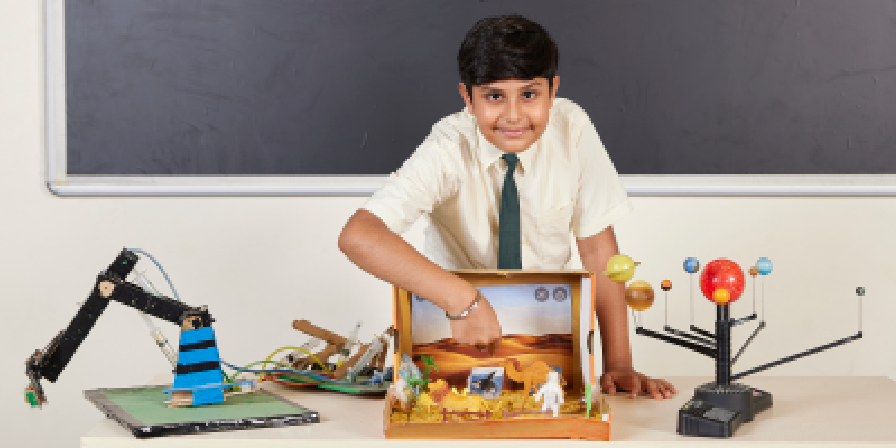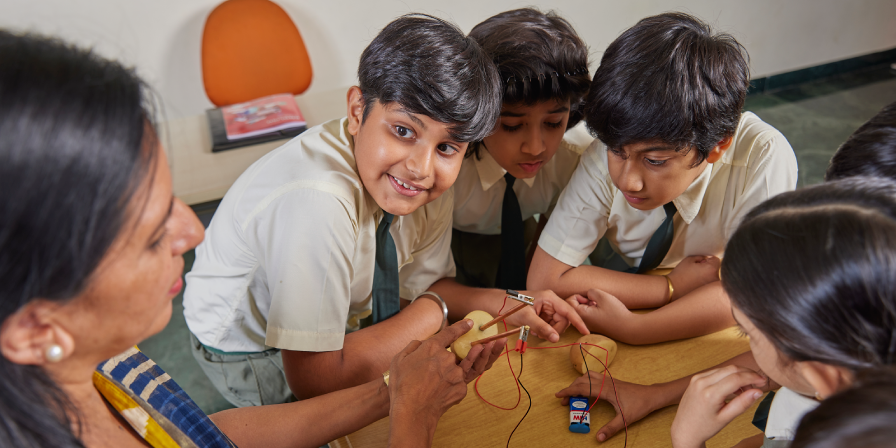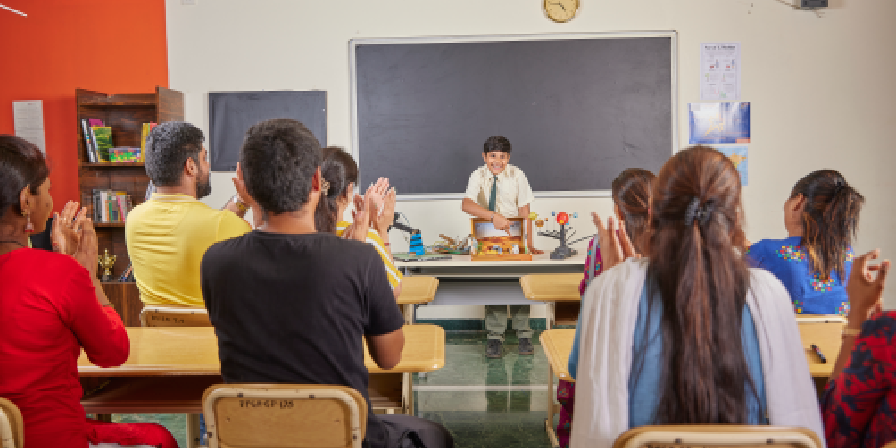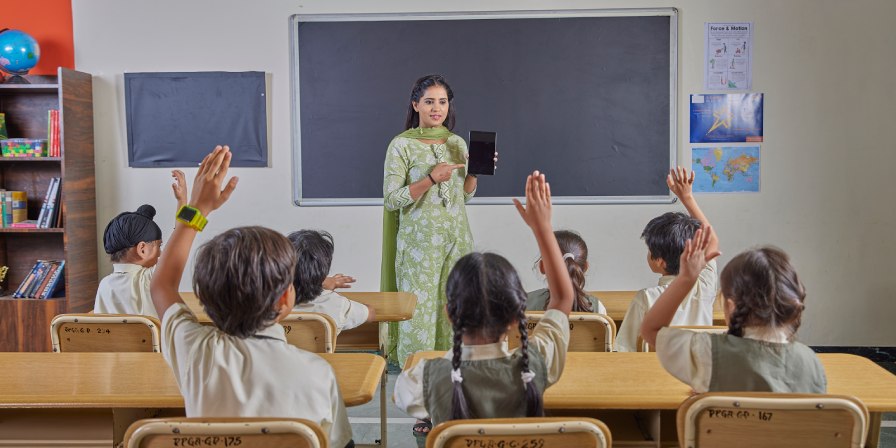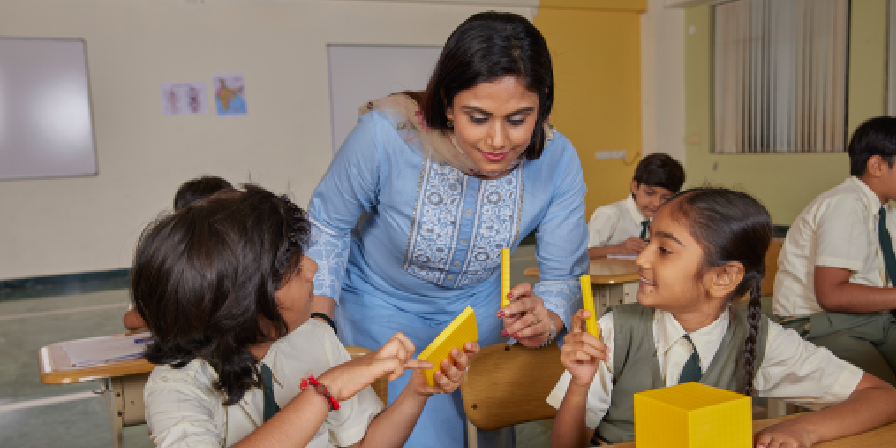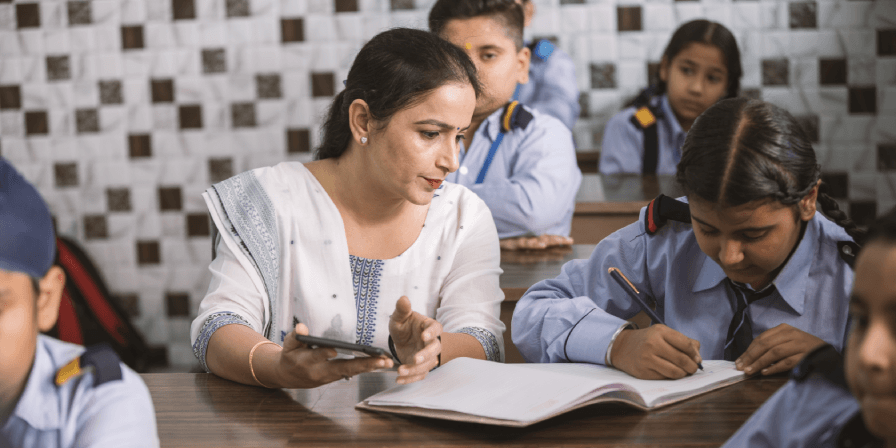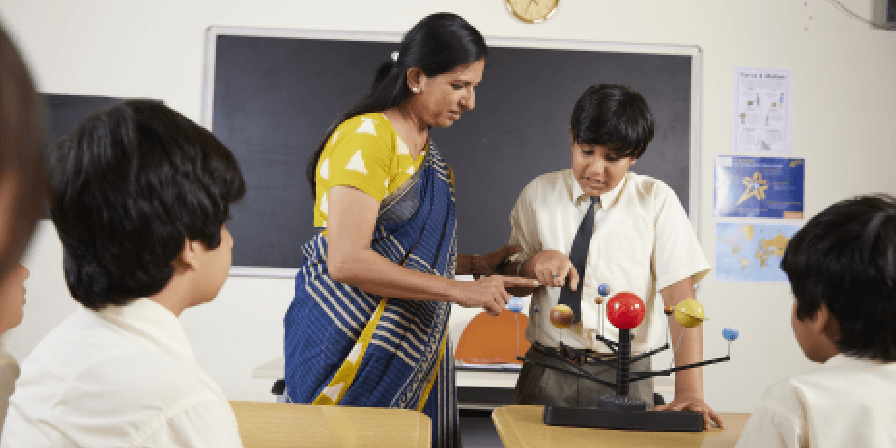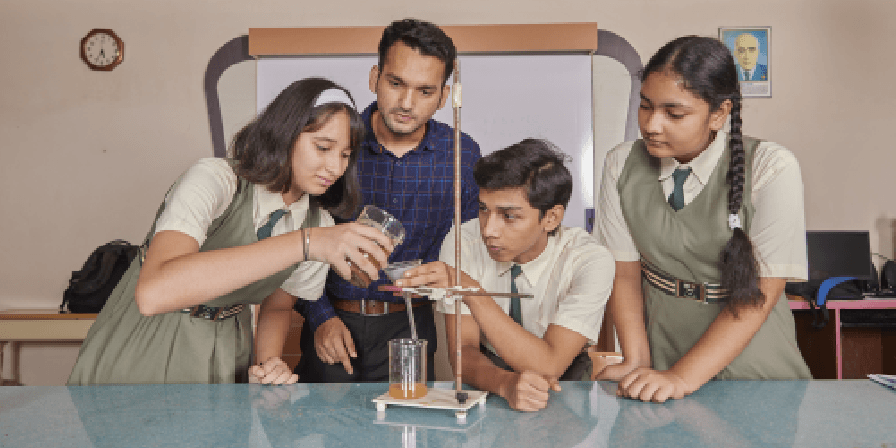LEAD’s Coding Program brings out creative thinking in students.
National Education Policy raises the criticality of creativity and critical thinking—addressing this problem at the ground level.
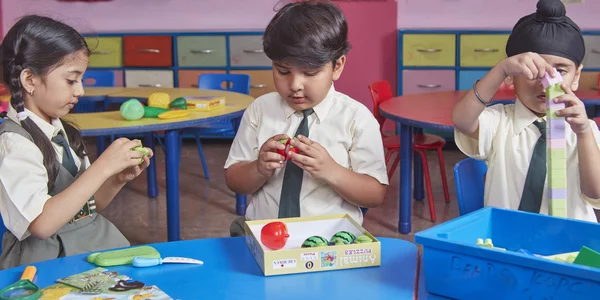
National Education Policy raises the criticality of creativity and critical thinking—addressing this problem at the ground level.
Last Updated On: 25/09/2024
Siddharth Saxena
School Owner

“Creativity now is as important in education as literacy, and we should treat it with the same status.” – Ken Robinson.
In this article

What does NEP say?

How NEP wants to cultivate creativity, innovation and critical thinking

How LEAD is helping schools nurture creativity, innovation and critical thinking
What does NEP say?
The vision of the National Education Policy is to transform India sustainably into a vibrant, equitable, and enlightened knowledge society of creative, innovative, and holistic global citizens with future-proof skills. Therefore, it brings significant changes to school curriculum and pedagogy to make both school and higher education more holistic, experiential, integrated, learner-centred, discussion-based, discovery-oriented, inquiry-driven, flexible, and, of course, enjoyable.
The National Education Policy 2020 strongly emphasises the development of the “creative potential” of each student. It follows the principle that says the aim of education should not only be to develop cognitive skills — both “higher-order cognitive capabilities,” such as critical thinking and problem-solving and “foundational capacities” of numeracy and literacy — but should also be to develop emotional, social, and ethical capacities and dispositions. Through good governance, autonomy, and empowerment, it encourages creativity, innovation and out-of-the-box thinking at all levels of education.
Never miss a story
Stay updated with the latest news and articles related to school education
GIVE YOUR SCHOOL THE LEAD ADVANTAGE
Here's what the new National Education Policy recommends to cultivate creativity, innovation and critical thinking among the learners:
1. Shift From Rote Learning to Conceptual Understanding
The National Education Policy emphasises conceptual clarity rather than rote memorisation and learning for exams. It not only focuses on children’s cognitive development but also on developing ethical, character, and Constitutional values to equip students with 21st-century skills like critical thinking, creativity, problem-solving, intellectual curiosity, scientific temper, social responsibility, digital literacy, etc.
The key overall thrust of the National Education Policy is to shift the Indian education system towards real understanding and help children grasp “how to learn?” — and away from the old system of rote learning followed by most schools today.
2. Transforming Assessments
The National Education Policy replaces the summative assessment form with a more regular and formative assessment pattern to retire rote learning and coaching culture. It recommends the following initiatives to keep assessment “as”, “of”, and “for” learning:
- Competency-based Assessments to promote higher-order skills, such as critical thinking, conceptual clarity, and analysis.
- 360-degree, Multidimensional Report Card to reflect cognitive, affective, and psychomotor domains of learner
- Board Exams should have two types of questions: Descriptive type and Objective type with multiple-choice questions
- Self-assessment and peer assessment
- Digital Assessments – Conduction of online formative and summative assessments
The National Education Policy tries to instil 21st-century skills among learners by revamping assessments.
3. Experiential Learning
The National Education Policy recommends schools adopt experiential learning at all stages of education, along with a few inclusions in the pedagogy. These include:
- Hands-on learning
- Storytelling-based pedagogy
- Arts and games/sport-integrated education
The art-integrated education will strengthen the link between culture and education. At the same time, sports-integrated learning will foster the holistic development of children by promoting their physical and psychological well-being and enhancing their cognitive abilities.
4. A Strong Focus on Early Childhood Care and Education (ECCE)
Given that over 85% of a child’s cumulative brain development occurs before age six, the National Education Policy emphasises ensuring universal access to free, safe, and high-quality ECCE across the country. The new 5+3+3+4 pedagogical model introduced in the revised policy lays a strong foundation for Early Childhood Care and Education by encouraging the following types of learning for all children from 3 to 6 years:
- Multi-level
- Inquiry-based
- Discovery-based
- Play-based
- Activity-based
- Multi-faceted
- Flexible
It also includes a focus on developing:
- Good behaviour
- Ethics
- Teamwork
- Cooperation
- Courtesy
- Sensitivity
- social capacities
- Personal and public cleanliness
By encouraging ECCE right from age 3, the National Education Policy aims to promote the development of artistic/cultural, ethical-emotional, cognitive, motor, physical, communication, early language, literacy, and numeracy skills of children.
5. Embracing Technology for Uninterrupted Learning
The recent COVID-19 outbreak has highlighted the need for online learning. Therefore, the new National Education Policy recommends that all educational institutions leverage EdTech solutions to ensure uninterrupted learning and teaching. For this, the policy recommends certain key initiatives, such as:
- Public Digital Infrastructure
- Learning Management System/ERP Software
- Virtual Labs
- Digital Repositories
- Wide-scale Dissemination of Learning Materials
- Teachers’ Involvement in Content Creation
- Fun-based Learning through Student-appropriate Apps and Games
- Upgrading Existing eLearning Platforms
By promoting the use of modern tools and technologies in education, the National Education Policy aims to make learning accessible to each individual at all levels of education.

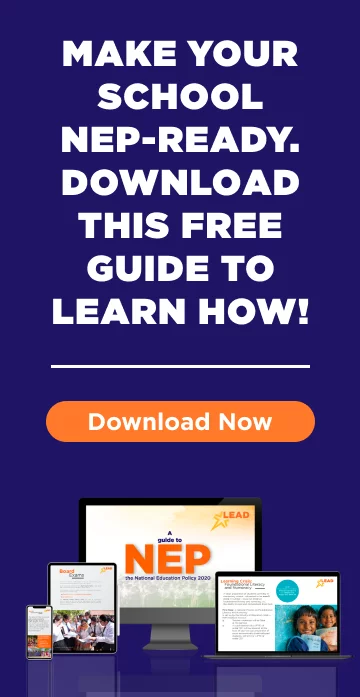
How LEAD is Helping Schools Nurture Creativity, Innovation and Critical Thinking in Children
LEAD, India’s largest School EdTech company, enables Indian schools to bring out students’ true creative potential. For this, it offers a broad spectrum of solutions for schools, including but not limited to the following:
- An integrated, theme-based pre-primary curriculum
- 100% smart classrooms
- Smart TVs with audio-visual content
- Multimodal, experiential, activity/theme-based learning
- Practice books and grade-wise activity kits
- Coding and computational skills from Class 1
- More focus on Higher Order Thinking Skills
- Strong USE-THINK-BUILD pedagogical approach via LBD, CPA, and VLC routines
- A CPA (Concept-Pictorial-Abstract) approach
- Learn-by-Doing module
- Extracurricular Activities
- Innovative programmes like Sampoorna Hindi and ELGA
- Early EVS and Early Mathelogic
- LEAD Championship for high-performers
- Super 100 for Grade 10 students
- LEAD Summer Camp
- LEAD Masterclass
- Student Led Conferences (SLCs)
- Digital assessments through Practice Tests on student app
- Morning Routine, Yoga & PE (Physical Education)
Conclusion
LEAD is India’s first ‘EdTech Unicorn’ of 2022, powering over 3000+ schools to deliver international standard education across 400+ locations. So if you want to turn your students into creative leaders of tomorrow, do contact us today to get a FREE NEP Consultation.
Article Summary
- National Education Policy aims to promote creativity and critical thinking in 21st-century learners to encourage logical decision-making and innovation
- It emphasises conceptual clarity rather than rote memorisation and learning for exams
- It replaces the summative assessment form with a more regular and formative assessment pattern
- It recommends schools adopt experiential learning at all stages of education
- Given that over 85% of a child’s cumulative brain development occurs before age six, the National Education Policy emphasises ensuring universal access to free, safe, and high-quality ECCE to every child
- National Education Policy recommends that all educational institutions leverage EdTech solutions to ensure uninterrupted learning and teaching
